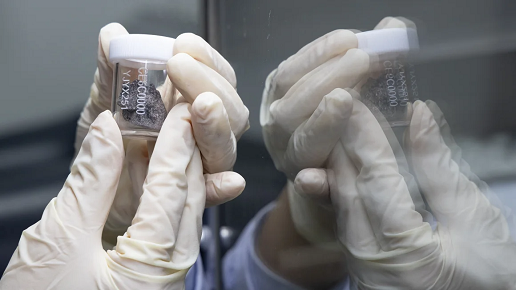Vaccine registration began on June 15, and the Central Epidemic Command Center (CECC) announced that public vaccination will prioritize the elderly population aging 75 years and above.
Many people are concerned and wondering if it is safe for them to receive the vaccine. What if you are a cancer patient, an elder with a chronic disease, or pregnant? The Taiwan Immigrants' Global News Network organized a list of Q&A for our readers.
Read more: Ministry of Labor: Migrant workers are prohibited from switching employers and 3 new restrictions
0620.jpg)
Q: Who cannot receive the vaccine?
People with a history of allergic reactions to vaccine components and having weak immune systems. Those with fever or acute diseases also cannot receive the vaccine immediately, they must wait for their fever or sickness to pass before vaccinations.
Q: Can cancer patients receive the vaccine?
According to the deputy director of the Tainan Municipal An-Nan Hospital-China Medical University (台南市立安南醫院) Hsü Ping-i (許秉毅), cancer patients who have been vaccinated with Anti-Covid19 and have received hormonal therapy and molecularly targeted therapy can continue to take their medicines. For those who received B-Cell immunosuppressive agents like Rituximab, it is recommended to have a period of 4 weeks or more between the vaccination and the immunosuppressive drug. For those who received CAR-T Cell therapy (Chimeric Antigen Receptor-T Cell Thereapy), it is recommended to wait at least 3 weeks before getting the Covid-19 vaccine.
Q: Can patients with heart disease, high blood pressure, high sugar, high cholesterol receive the vaccine?
Yes, although patients with cardiovascular diseases and high blood pressure (hypertension, high blood super, high blood fat) have higher mortality rates with the COVID-19 virus. Doctors say that the clinical benefit outweighs the risk and recommends taking the vaccine.
Read more: NIA: Automatic 30-day extension for foreigners living in Taiwan
0620.jpg)
Q: Can pregnant women receive the vaccine?
Yes. However pregnant women can only receive the Pfizer or Moderna vaccines.
Q: Can women who breastfeed receive the vaccine?
Yes
Q: If I have already contracted the COVID-19 virus, can I still receive the vaccine?
People who previously contracted the COVID-19 virus, symptomatic or asymptomatic, should be vaccinated. The Center for Disease Control (CDC) stated that confirmed cases must be vaccinated within 6 months of contracting the virus. They must undergo quarantine and treatment if necessary.
Q: What are some side effects after receiving the vaccine?
You might experience pain or redness in the area you were injected. You might also experience fatigue, headache, muscle ache, mild fever (over 38 degrees but it will subside within a day or 2), chills, joint paint, etc.
Q: What should I do after receiving the vaccine?
- Rest and drink plenty of water.
- If you have a fever, you may take anti-fever medicine and pain relievers.
- Do not irritate the area you were injected, apply a cold compress.
Read more: 5 Major Controls for Traditional Markets: Crowd control and limited shopping time
0620.jpg)
Q: After receiving the vaccine, how will I know if I need to seek medical attention?
The CDC says that people who received the vaccine abroad might experience some symptoms of Thrombosis with thrombocytopenia syndrome (TTS) within 28 days of vaccination. If you experience any of the following symptoms after receiving the vaccine, seek medical treatment immediately and explain your vaccine history:
- Persistent headaches, changes in vision, or epilepsy.
- Persistent abdominal pain for more than 24 hours.
- Chest pains or having difficulty breathing. Swelling of lower limbs or skin irritation.
- Spontaneous bleeding, bruising, red or purple spots on the skin
Q: Can I receive 2 different kinds of COVID-19 vaccines?
No. The CDC pointed out that there is not enough information to confirm whether this is effective or safe. Therefore, it is recommended not to take different vaccines at the same time.
Q: How long is the interval between the 2 vaccine doses?
For vaccines being delivered in Taiwan, the interval for the AstraZeneca (AZ) vaccine is more than 8 weeks between the 2 doses. The interval for the Moderna vaccine is at least 28 days between.

0620.jpg)





